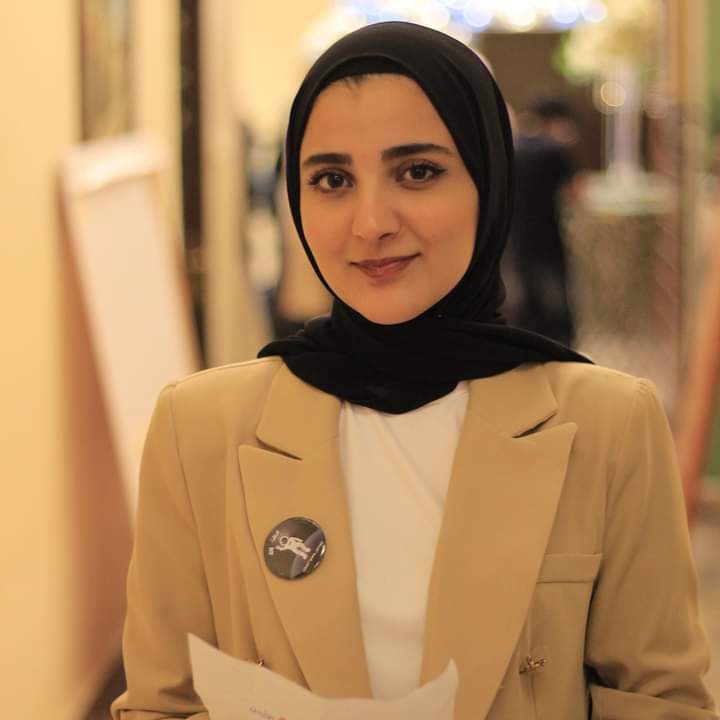قبل السابع من أكتوبر كان فريق عمل الجزيرة 360 قد انتهى من إنتاج أول برامجه "يوميات مقاتل" الذي يسرد في إحدى حلقاته قصة محمد النجار من حي الزيتون بغزة. تضيء القصة على واقع الإنسان الغزيّ الذي يرفض اغتيال الطفولة والأرض والذكريات، ولا يؤمن بالحل السياسيّ و"السلام العادل". يبدأ مسيرته النضالية الطويلة في اللحظة التي يغتال فيها الاحتلال الإسرائيلي فارس عودة صديق طفولته، وتنتهي بتلقي فريق العمل خبر استشهاده قبل عرض الحلقة؛ هكذا ترسم المنصة طريقها لمحاكاة قضايا المشاهد العربي والوصول إليه.
يقول مدير منصة الجزيرة 360، جمال الشيّال، عن لحظة الانطلاق: " في 15 سبتمبر/ أيلول 2024 انطلقت منصة 360 التي بنيت فكرتها على استمرار رسالة الجزيرة؛ فبالنظر إلى الواقع إستراتيجيًا، نحن نعيش في زمن يشتبك فيه المشاهد مع المحتوى من خلال المنصات الرقمية، وكي نواكب ذلك لا بد أن تكون هناك منصة رقمية للجزيرة تواجه تغييب الحقيقة، منصة بلا قيود وغير خاضعة للخوارزميات والسياسات الخاصة بالمؤسسات، إضافة إلى حفاظها على أرشيف الجزيرة وتخليده وإعادة إنتاجه لأجيال جديدة".
"نعيش في زمن يشتبك فيه المشاهد مع المحتوى من خلال المنصات الرقمية، وكي نواكب ذلك لا بد أن تكون هناك منصة رقمية للجزيرة تواجه تغييب الحقيقة، منصة بلا قيود وغير خاضعة للخوارزميات والسياسات الخاصة بالمؤسسات، إضافة إلى حفاظها على أرشيف الجزيرة وتخليده وإعادة إنتاجه لأجيال جديدة".
الحرية والابتكار!
بيّنت التجربة خاصة أثناء حرب الإبادة الجماعية في فلسطين أن المنصات الرقمية - التي كان يُنظر إليها في السابق كفضاء متحرر من الرقابة - أصبحت توظف الخوارزميات وتحدّ أو تقيد من وصول المحتوى إلى الجمهور.
يعتقد الشيال أن الالتزام بالمصداقية والمهنية وتجسيد مبدأ الجزيرة "صوت من لا صوت له" يعزز مكانة المنصة لدى الجمهور، ويدفعه للبحث عنها ومتابعتها حتى ولو تعرضت المنصة للحجب.
يتجاوز الابتكار الحواجز الجغرافية والسياسية التي يفرضها المناخ المقيّد للحريات الصحفية، وعلى هذا الأساس يعتبر الشيال "أن الابتكار سيبقى الحل الأبرز في مواجهة محاولات إسكات الحقيقة، ولا يقتصر الأمر فقط على الجانب التقني فقط، بل يتجاوزه إلى بناء السرديات وكتابة النصّ والقوالب المختلفة في تقديم البرامج".
هذا الاحتكاك مع الجمهور يمكن أن يتخذ صيغا مختلفة مثل إعداد برنامج حواري دون محاور، يولي أفكار الجمهور وآراءه أهمية أكثر من اهتمامه بالمحاور نفسه، أو برنامج ديني يقدمه شيخ دون "حدود مصطنعة" مع الجمهور أو برنامج سياسي ساخر يقدمه جيل شاب لديه القدرة على التفاعل مع الجمهور بعمق ومحاكاة تطلعاته" وفق رؤية الشيال.
في ظلّ إنتاج هذا الكم من المحتوى المتنوع، يرى الشيّال أن الحفاظ على هوية الجزيرة يتجسد بداية في "اسم المنصة وشعار (لوغو) الجزيرة، ويمتد إلى القواعد المهنية التي تستند إليها عجلة الإنتاج. وعلى مستوى المواضيع: تمثل القضية الفلسطينية والقضايا العربية أساس رسالتنا التي تعكس واقع الجمهور العربي، وثمة برامج كثيرة أنتجت خلال الفترة السابقة تركز على حرب الإبادة في غزة والسودان وسوريا، وأخرى عن العنصرية التي يواجهها عرب المهجر".
تسير المنصة على نهج شبكة الجزيرة في احترام المعايير التحريرية، لكنها تتخذ مسارا مختلفا في الجانب التقني ليتناسب مع طبيعة المحتوى المنتج على المنصات الرقمية.
يعتقد مدير المنصة أن الالتزام بالمصداقية والمهنية وتجسيد مبدأ الجزيرة "صوت من لا صوت له" يعزز مكانة المنصة لدى الجمهور، ويدفعه للبحث عنها ومتابعتها حتى ولو تعرضت المنصة للحجب.

تحاول المنصة بشكل مستمر دراسة سلوكيات المشاهد العربي عامة ومشاهدي الجزيرة خاصة وكذلك مستخدمي الفيديو، وبناء على ذلك تحدّد الأولويات التي تلبي توقعات الجمهور. ولعل الغاية الأساسية - وفق الشيال - من هذه الدراسة هي "البحث عن أثر جيد لدى المشاهد سواء عبر أسلوب التصوير الذي يقترب من السينمائية أكثر من كونه إنتاجا تلفزيونيا تقليديا، ومراعاة النمط السريع للسردية، أو حتى وضع هذه السردية في قوالب البرامج الوثائقية والاستقصائية، مع الاهتمام بإنتاج برامج بحلقات متسلسلة".
لماذا الجزيرة 360؟
مليون ونصف مليون مشترك، و120 ألف متابع للمنصة يوميا، هذه الأرقام التي تحققها المنصة رغم حداثة نشأتها. ومع أن التأثير لا يرتبط بالأرقام فقط، لكنها في نظر الشيال تشكل مؤشرا دالا على "تعطش الجمهور للمحتوى القيم " وهي أرقام لم تحققها منصة أخرى توّفر محتوى دسما وذا قيمة في الوقت ذاته.
تطمح المنصة إلى الاستمرار في إنتاج محتوى هادف يتخذ في بعض الأحيان الترفيه وسيلة وليس غاية، وهو ما يجعلها مختلفة "لأننا نمتلك مكتبة تحتوي على أكثر من 50 ألف ساعة من المحتوى المجاني. ويقودنا ذلك لمحاولة التغلب على احتكار الغرب للمنصات التي تدخل البيوت العربية رغم أنها تتبنى في الكثير من الأحيان سرديات مضادة لها".
يشتغل خلف الكواليس جيل شابٌ يمثل أكثر من 90% من كادر المنصّة، تستقطبهم الجزيرة 360 بناءً على مهاراتهم الإنتاجية والمهنية. ويعتقد الشيّال "أن هذه الكفاءات هي السبب وراء إنتاج أكثر من 260 حلقة من برامج أصلية على مستوى عال جدًا من الجودة، لاقت تفاعلا جيدا جدًا من الجمهور العربي أثناء عرضها على المنصة.
يشتغل خلف الكواليس جيل شابٌ يمثل أكثر من 90% من كادر المنصّة، تستقطبهم الجزيرة 360 بناءً على مهاراتهم الإنتاجية والمهنية. ويعتقد الشيّال "أن هذه الكفاءات هي السبب وراء إنتاج أكثر من 260 حلقة من برامج أصلية على مستوى عال جدًا من الجودة، لاقت تفاعلا جيدا جدًا من الجمهور العربي أثناء عرضها على المنصة".
في زحام الأخبار العاجلة، يمنح السرد الصحفي القصص الإنسانية فرصتها في البقاء، ويكسبها بعدا جديرا بأن يطوي صفحة السرعة ويخلّد القصة؛ الإنسان وما وراء الخبر. وهذا بالتحديد ما تسعى إليه منصة الجزيرة 360، حتى تظل الحقيقة راسخة في الذاكرة الجماعية للشعوب؛ يقول الشيّال "القصص الإنسانية مؤثرة جدًا، وهي الدافع لاستمرار العمل المبني على المسؤولية الأساسية في نقل الحقيقة ورواية القصص. وفي الكثير من الأحيان لولا منصة الجزيرة 360 ولولا الجزيرة لما سمع أحد هذه القصص".








































